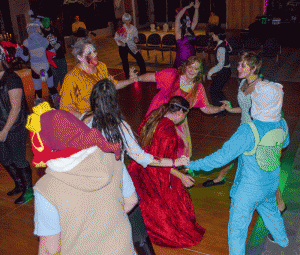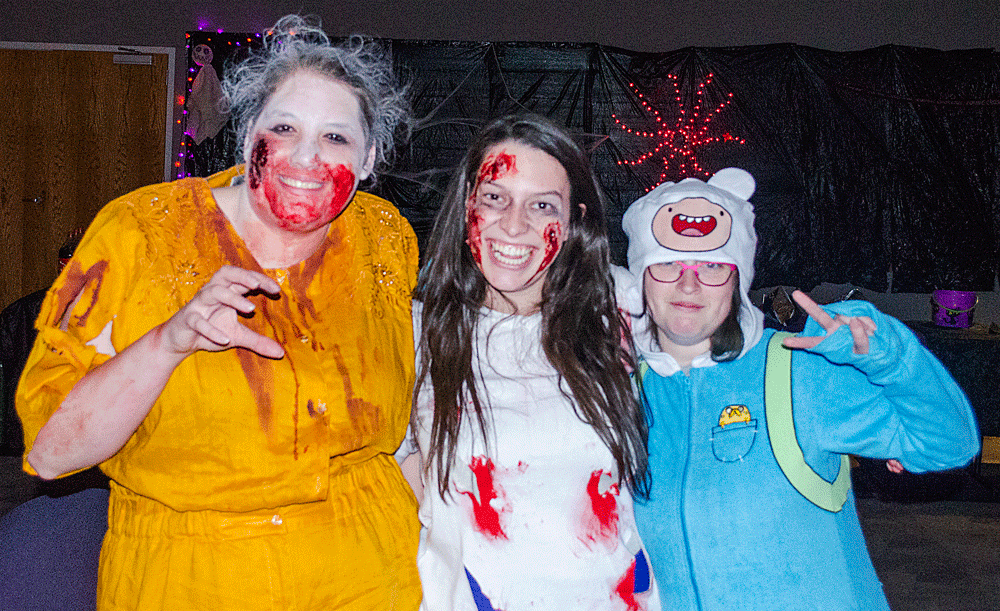The Pagan Student Association hosted its annual Halloween Ball in Plemmons Student Union on Friday, where the pagan group members, who refer to themselves as the PSA or the Pagans, gathered in costume to celebrate in the Grandfather Mountain Ballroom.
To the pagans, Halloween means more than a chance to dress up and pig out on Jell-O shots and candy.
Junior psychology major and club historian Elizabeth Robinson said while most

people celebrate Halloween on Oct. 31, pagans celebrate Samhain. Samhain, pronounced “sow-in,” is a time for celebrating ancestors by remembering and respecting them through setting places for them at the dinner table and performing seances.
Senior sustainable development major and PSA president Michael Barry believes Samhain is one of the most important holidays for a pagan.
“It’s essentially the pagan new year,” Barry said.
Barry, who dressed as the Greek deity Dionysis, complete with a pine-cone thyrsus and blood smeared hands and mouth, has been involved with PSA since transferring to Appalachian State University last year. He has been involved with pagan associations before, and at his previous university, he formed a Pagan Student Alliance. Barry said what appealed to him about pagan associations was the sense of belonging and safety.
“I identify as pagan, and for me building a community is a huge thing since we’re such a small and marginalized group,” Barry said. “It’s really necessary to create a space where we can feel safe.”
Barry acknowledged many students at Appalachian do not understand or have not heard of PSA, but his years as a pagan have more than equipped him to answer one frequently asked question – what exactly is a pagan?
“It is a broad term that describes a collection of faiths that are, at their roots, usually nature-based,” Barry said. “They can be monotheistic or polytheistic, reconstructionism or aboriginal. We’re looking at lots of native religions or fractured native religions from all over the world, so they are usually not text-based and are usually passed down culturally.”
Barry noted that while pagan beliefs can vary extensively, most pagans have shared value of inclusion, open-mindedness, respect and tolerance that bring them together. He also mentioned the resurgence of Paganism in the United States since the 1960s hippy movements, usually referred to as “neo-pagan” or “temporary Paganism.”
The PSA was formed in 2003 at Appalachian, and currently about 30 of this new generation of pagans have found a community.
New PSA member and junior anthropology major Sydney Boulware said her favorite part of the club was how the group formed a family unit inside and out.
“We’ll go to meetings and a lot of us will go out to eat afterwards, it’s really like a group of friends,” Boulware said.
Boulware also added that while the pagan community is certainly tight-knit, they are in no way exclusive to pagans.
In fact, many PSA members do not identify as pagan, but rather as atheist, agnostic or Christian, and stay for the community and educational aspects of the club.
“Everyone is welcome,” Barry said.
The Pagan Student Association meets in Plemmons Student Union every Thursday at 7:30 p.m.
Photo: James Johnston, Intern Photographer

